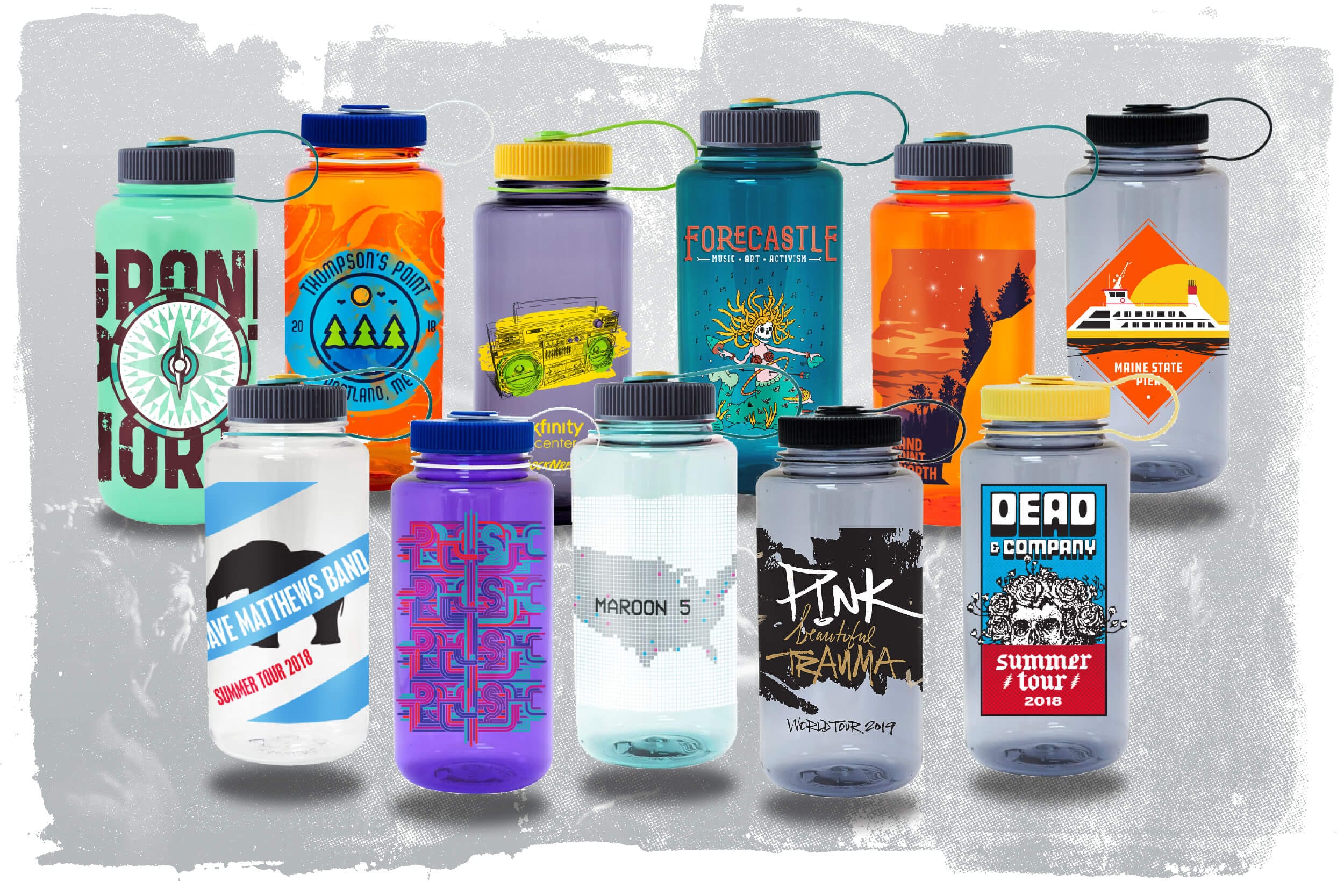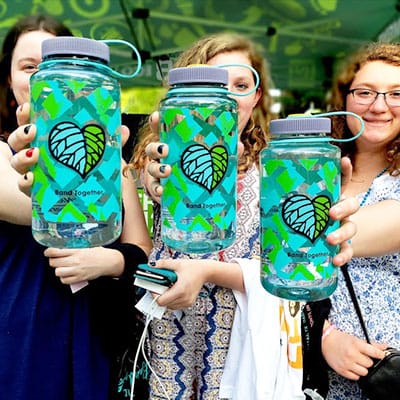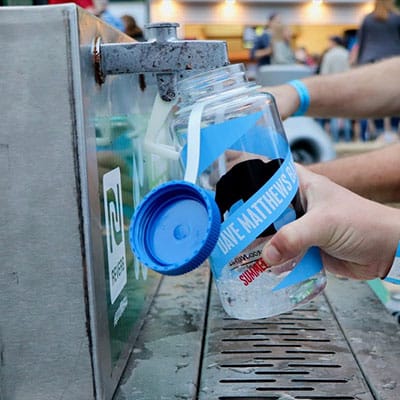Why Fight Plastic with Plastic?

Why would you use a plastic bottle to fight plastic waste?
We hear that a lot due to our work reducing single-use plastic at live music events via our #RockNRefill program with our partner, Nalgene. Most of the time it’s a sincere question, some of the time it’s an attempt to troll us for, you know, trying to take action for the environment (because that’s totally something that should be trolled, right!?). But regardless of the motivation, it’s a fair question to ask and one that we’re happy to delve into – so let’s delve!
OK, then… Why would you use plastic?

Single-use plastic – whether it’s a water bottle, a disposable bag, straws, etc. – has a very limited working life and then proceeds to wreak havoc upon the environment for centuries. A plastic bag, for instance, has an average useful working life of about 12 minutes, after which it is discarded and sits in a landfill (if we’re lucky) for hundreds of years or ends up being disposed of improperly and polluting the planet.
And yes, single-use plastic can sometimes be recycled BUT it can only be downcycled, meaning a plastic bottle will never be a plastic bottle again. The plastic gets made into lower quality plastic, and while it has its uses, it’s still not really a viable solution to the amount of single-use plastic waste the world currently generates.
And here’s the kicker – a measly 9% of plastic actually gets recycled. REVERB’s math department crunched the numbers and they’ve concluded that means 91% of plastic is not recycled. Gross. (Thanks math department!)
There’s no way around it – single-use sucks.
OK, fine, single-use plastic sucks, but then why use plastic at all!? Why don’t you use other materials?

Let’s start with practicality. We do our work in live music so anything glass is a nonstarter. Agreed? Agreed.
OK, so then what about aluminum or stainless steel? Definitely viable options, but not without their own set of issues. First, the mining for the raw materials has significant impacts on the environment, indigenous peoples, human rights and more.
Second, nearly all stainless steel and aluminum bottles are produced in Asia and then shipped around the world, so the carbon footprint of most of these bottles is huge.
This is not to say you shouldn’t use steel or aluminum bottles necessarily – they are both infinitely recyclable which is awesome and if you’ve already got one, it’s way better to keep using it rather than buying something new! We simply want to note that other materials are not without environmental impact.
OK, my dudes, we get it… But you still haven’t really answered why plastic bottles.

It’s not really about plastic bottles being a superior choice, per se. (Although for use at live music events, plastic is generally more widely accepted and allowed entry to shows by security and management than metal.)
It’s really about who is producing the bottles and how they’re being produced! We’re proud to partner with Nalgene and use their bottles as part of #RockNRefill program. Here’s why:
- Made in the USA: Nalgene is based out of Rochester, NY and produces all of their bottles there.
- Carbon Footprint: The raw plastic is manufactured in Tennessee and shipped by train for production in New York. Rochester Institute of Technology calculated Nalgene bottles have 90% lower carbon emissions than bottles that are produced and shipped from Asia.
- (nearly) Indestructible: Within reason*, Nalgene bottles are virtually indestructible, they don’t shatter like glass (hello live music events!), and they will last a lifetime. (*Note: Outside of reason includes – but is far from limited to – running over a bottle with your car, freezing it and then hitting it with a hammer, anything involving explosives, etc.)
- Recyclable: While they’re (nearly) indestructible, if something were to happen to your bottle, they are recyclable. As noted above, it’s not perfect, but plastic bottles can be turned into new materials.
- Supporting Lots of Good Causes: Nalgene’s generosity and dedication to doing good for people and the planet allows 100% of the proceeds from the #RockNRefill program to support nonprofits around the United States.
So there you have it.
That’s our reasoning. Are reusable plastic bottles perfect? No, but no material is and they all have an impact on the environment. It is safe to say, however, that no matter what you choose reusable is ALWAYS the way to go.
Check out the #RockNRefill Program to learn more about the positive impact this program is having and follow us on Twitter, Instagram, and Facebook to get updates on new bottles, new tours, and more positive impact for people and the planet.
